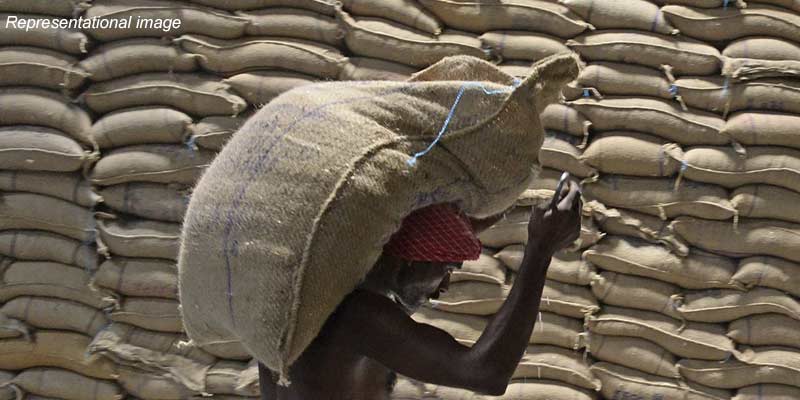- India
- Jul 21
Govt bans export of non-basmati white rice
• The government banned exports of non-basmati white rice to boost domestic supply and keep retail prices under check during the upcoming festive season, the Directorate General of Foreign Trade (DGFT) said in a notification.
• In order to ensure adequate availability of non-basmati white rice in the domestic market and to allay the rise in local prices, the government has amended the export policy from ‘Free with export duty of 20 per cent’ to ‘Prohibited’ with immediate effect.
• Non-basmati white rice constitutes about 25 per cent of total rice exported from the country.
• There is no change in export policy of par-boiled non-basmati rice and basmati rice, which forms the bulk of exports.
• As per the commerce ministry data, India’s total exports of basmati rice stood at $4.8 billion in 2022-23, while in volume terms it was at 45.6 lakh tonnes.
• Similarly, exports of non-basmati stood at $6.36 billion in the last fiscal. In volume terms it was 177.9 lakh tonnes.
• Major destinations of India’s non-basmati white rice exports include Thailand, Italy, Spain, Sri Lanka and the USA.
Why has this decision been taken?
• The domestic prices of rice are on an increasing trend. The retail prices have increased by 11.5 per cent over a year and 3 per cent over the past month.
• Export duty of 20 per cent on non-basmati white rice was imposed on September 8, 2022 to lower the price as well as ensure availability in the domestic market.
• However, the export of this variety increased to 42.12 lakh tonnes in September-March period of the 2022-23 from 33.66 lakh tonnes during September-March period of the previous fiscal.
• In the first quarter of the current fiscal, about 15.54 lakh tonnes of white rice was exported against only 11.55 lakh tonnes in the year-ago period, which means an increase by 35 per cent.
• This sharp increase in exports can be ascribed to high international prices due to geopolitical scenario, El Nino effects and extreme climatic conditions in other rice producing countries, etc.
Directorate General of Foreign Trade (DGFT)
• Directorate General of Foreign Trade (DGFT) is an attached office of the ministry of commerce and industry. Right from its inception till 1991, when liberalisation in the economic policies of the government took place, DGFT has been essentially involved in the regulation and promotion of foreign trade.
• Keeping in line with policies of liberalisation and globalisation and the overall objective of increasing exports, DGFT has been assigned the role of a “facilitator”. The transition has been from prohibition and control of imports/exports towards promotion and facilitation of exports/imports, keeping in view the interests of the country.
• This Directorate, with headquarters at New Delhi, is headed by the Director General of Foreign Trade.
• It assists the government in formulation of Foreign Trade Policy (FTP) and is responsible for implementing the Policy and schemes under FTP with the main objective of promoting India’s exports.
• Further, it is responsible for implementation of Foreign Trade (Development and Regulation) Act, 1992 and Rules and Regulations notified thereunder.
• The DGFT also issues authorisations to exporters and monitors their corresponding obligations through a network of 24 regional offices.
Manorama Yearbook app is now available on Google Play Store and iOS App Store

